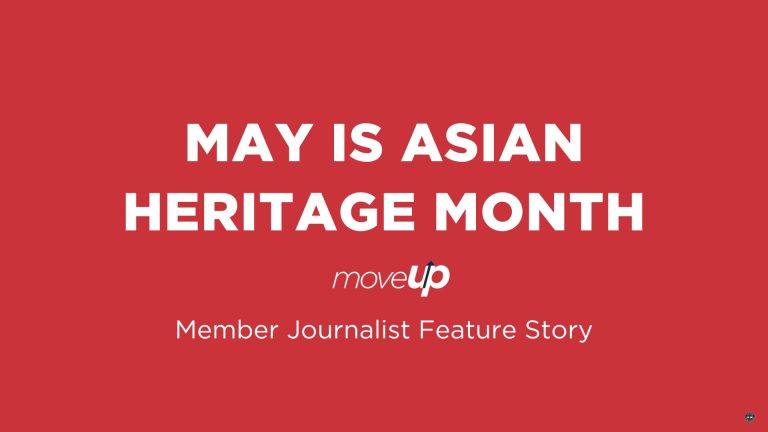By Shona Dion, MoveUP Member Journalist
Conversations are pathways to understanding.
When fellow MoveUP member Lin-Chuan introduced herself with both her legal name and her chosen name to me during a fall Job Steward Level 2 course, my curiosity was piqued. I reached out to her following the class and asked if we could chat further about her names.
Lin-Chuan is one year into her role as Job Steward and Executive Councilor with MoveUP, representing members working for BCGEU. She became active in union work after completing her graduate degree in communications at SFU, joining the effort to unionize research assistants into the TSSU, an independent and non-hierarchical feminist labour union. What a great entry point into union activism!
In Taiwan, where Lin-Chuan was born and raised, it is common to choose an English name when taking Englsih class at school (some people start to take English class in kindergarten or even earlier), an integral aspect of Taiwanese culture. This practice has Western influence aimed at facilitating pronunciation in English-speaking circles, which Lin-Chuan acknowledges. However, the situation is much more dynamic than it first appears.
“I didn’t like my name in the past because it’s hard to pronounce and unlike any other,” Lin-Chuan explained.
Lin-Chuan’s full name – Lin-Chuan Chang – comprises two Mandarin characters connected to form a meaning: open your eyes and see a forest of jade and a stream of water. As she grew older, Lin-Chuan came to appreciate the beauty and uniqueness of her name.
Before arriving in Canada, Lin-Chuan earned an undergraduate degree in Chinese literature which developed her “sensitivity in language.” Studying stories gave her an empathetic outlook on the experiences of others. Lin-Chuan became active in student life and wrote for her school magazine in Taiwan as a campus journalist. She considers her university experience coupled with her time as a campus journalist as having helped prepare her for the union work she does now.
When Lin-Chuan arrived in Canada in 2017, she chose to use her English name, Sabrina. However, a Nigerian friend at grad school challenged this choice, asking, “you made an effort to learn English, why couldn’t the rest of the world try a little harder to learn your legal name?”
Despite this, she continued to use Sabrina in the BCGEU office and after joining the MoveUP Youth Action Committee.
In 2023, Lin-Chuan faced an identity struggle and decided to use both names. The struggle was two-fold.
A coworker at the BCGEU office asked her why she didn’t use Lin-Chuan. She explained that she didn’t want to use Lin-Chuan because she was used to going by Sabrina in English-speaking circles. At the same time, she wanted to protect her birth name from mispronunciation and didn’t want those who knew it to correct others.
Though she also didn’t want her legal name to be forgotten. At the same time, she wasn’t ready to leave Sabrina behind.
“A part of me is being suppressed when people apologize to me for calling me Sabrina,” Lin-Chuan admitted. “She has been out there for such a long time. I am sentimentally attached. Sabrina is a name that suits me.”
Now, Lin-Chuan is balancing two identities, striving to protect and honour both.




